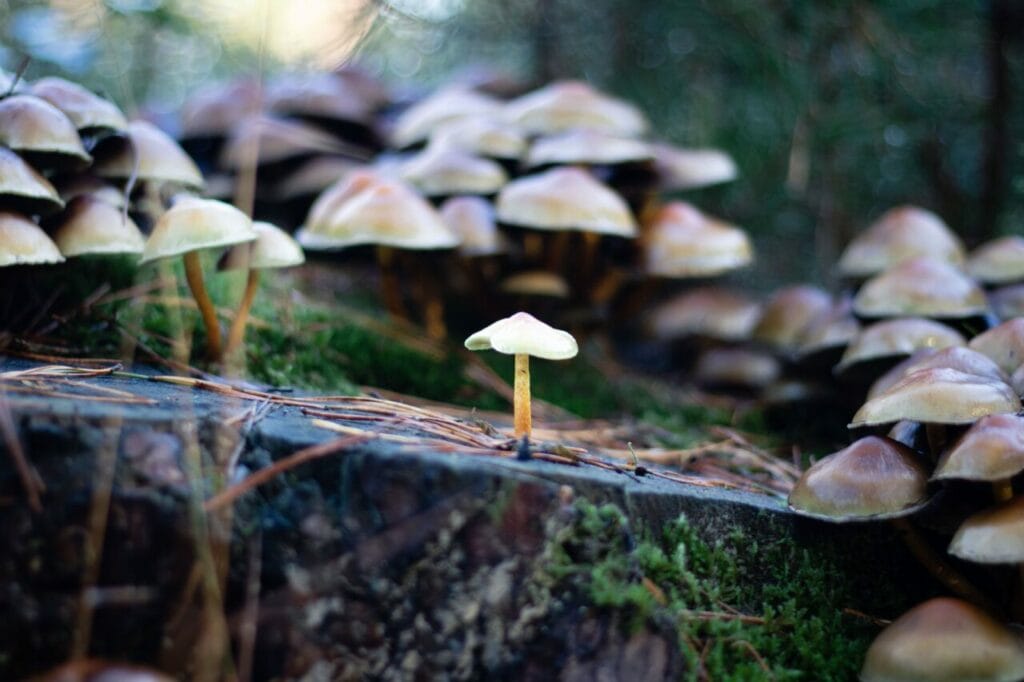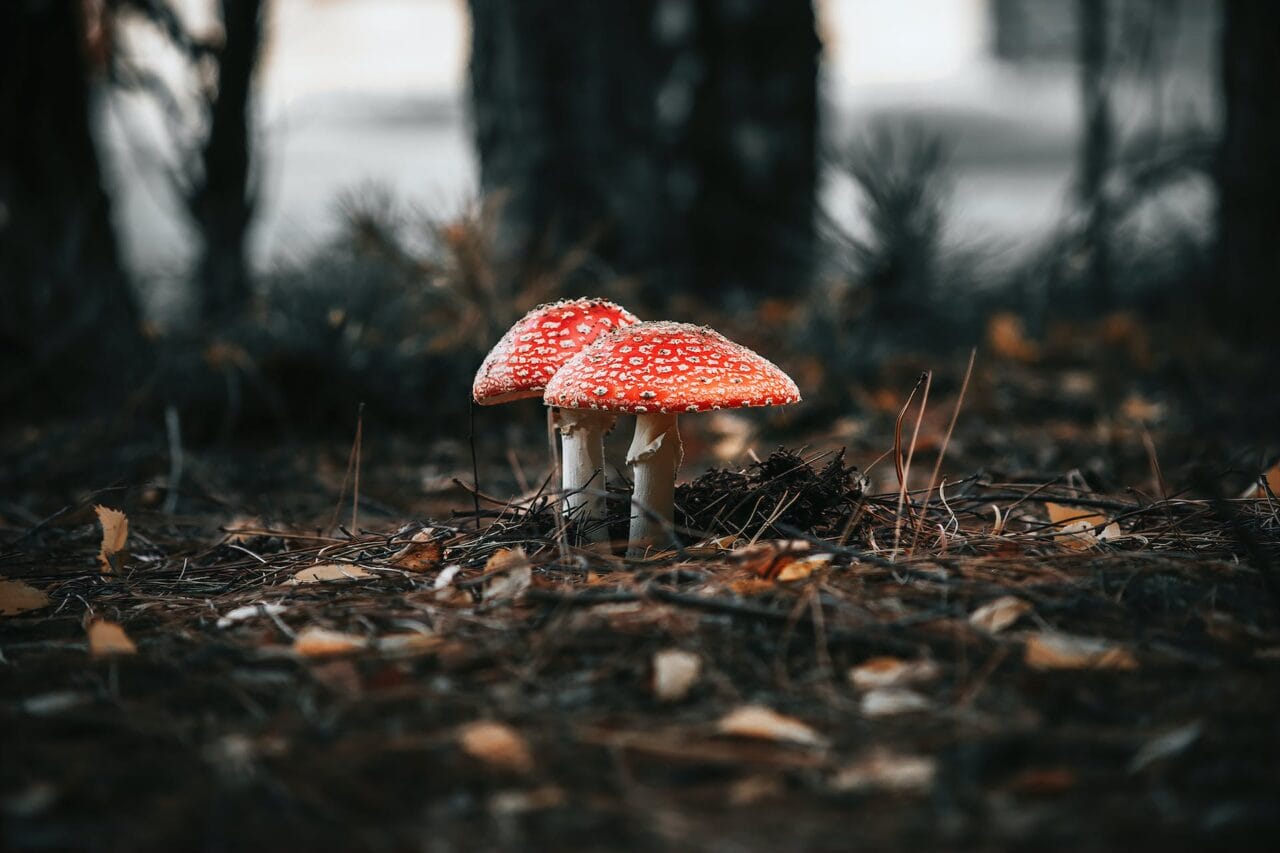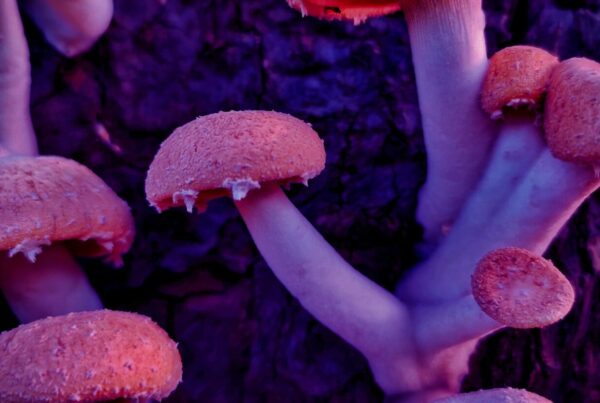Interest in psilocybin is on an upward trend, driven by studies exploring its potential therapeutic effects on mental health conditions such as anxiety and addiction. Despite this growing fascination, acquiring psilocybin remains a challenge. Access to labs and shroom delivery services offering magic mushrooms is limited, and costs can be considerably high.
This article delves into the evolution of psilocybin, its present status, and the potential advantages it could provide for those in search of relief.
[toc]Principal Takeaways:
- Mushroom cultivation requires considerable effort and careful monitoring to avoid contamination during the inoculation phase.
- Psilocybin triggers a psychedelic experience by interacting with several brain areas, primarily the serotonin receptors.
- Psilocybin only marginally increases the heart rate, which returns to normal shortly after ingestion, and generally does not lead to other negative effects.

Delivering Only the Finest Quality Magic Mushrooms
Magic mushrooms inherently grow in diverse environments, such as manure-enriched pastures, leafy temperate forests, grasslands, and woodlands. Over the years, people have ventured into these habitats to collect these fungi for medicinal purposes or for use in spiritual and religious rituals.
Conventional Approach
Currently, the ancient practice of scavenging for mushrooms in these natural environments is less common. This shift might be attributed to the advent of new methods like cultivation or the availability of online magic mushroom purchasing options.
Mushrooms found in the wild tend to be less potent compared to those grown in labs under controlled conditions. Moreover, there’s a risk of accidentally picking a poisonous species when foraging in the wild.
Contemporary Approach
The shroom production process commences with the nurturing of spores to maturity, a complex process requiring a
The cultivation of mushrooms demands considerable time and meticulousness, primarily to prevent any contaminations during the inoculation stage. Once the mushrooms reach the harvesting stage, they are most often dried by labs or growers to extend their shelf life. Fresh mushrooms have a lifespan of only a few days, while dried ones can be preserved for several months or even up to a year.
Manufacturers process dried mushrooms into diverse forms, including microdose capsules, edibles, tinctures, and beverages. These products are then distributed across Canada through magic mushroom delivery services.
Harnessing the Advantages of Psilocybe Cubensis or Magic Mushrooms
One primary reason researchers conduct clinical trials on mushrooms is to examine their impact on mental health and mood disorders, as suggested by anecdotal evidence. Numerous studies are exploring these effects, from microdosing with capsules to having a mushroom trip with dried mushrooms or chocolate edibles.
When consumed, psilocybin is metabolized into psilocin. This compound acts similarly to serotonin, a neurotransmitter crucial for mood regulation. It interacts with several areas in the brain, particularly the serotonin receptors, to induce a psychedelic journey.
Those who participate in psilocybin therapy often report drastic transformations beyond mere sensory amplification and visual modifications. Such experiences can result in a significant change in self-perception and a profound shift in personal perspective, often marked by deep insights.
Depression and Suicidal Thoughts
In a study published in the Journal of Psychopharmacology, researchers explored the effects of a psychedelic experience on individuals battling depression and suicidal ideation. Most participants deemed their experience with psilocybin highly meaningful and underscored its potential impact on their lives. Such high levels of satisfaction could boost the effectiveness of therapy, given the crucial role of patient engagement in mental health interventions.
Safety Profile
Apart from examining the effects of psilocybin on depression and anxiety, researchers also probe into its safety profile. A study in JAMA Psychiatry reported that participants who ingested psilocybin demonstrated a slight increase in heart rate and blood pressure two hours post-consumption. Nonetheless, further analysis using Holter monitoring revealed no significant increase in cardiac arrhythmias risk in the psilocybin group compared to the niacin group. The study also discovered that…
Users experienced no significant psychological distress.





